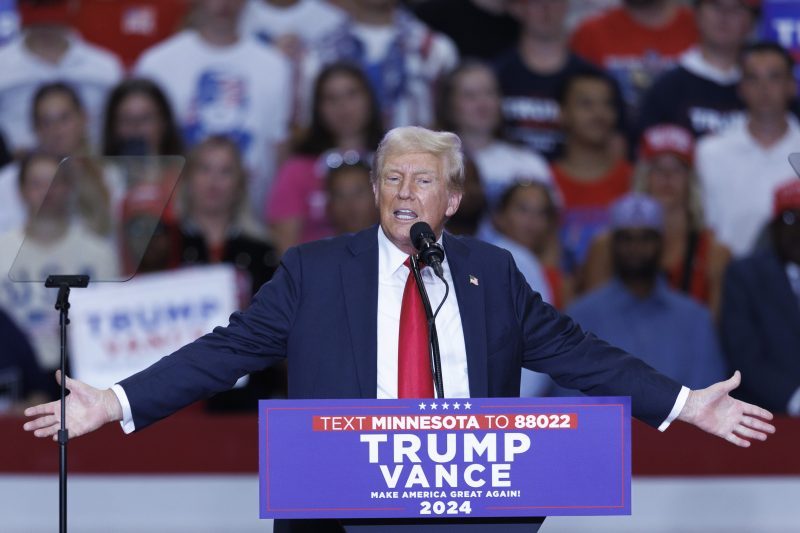In a recent statement, former President Donald Trump appeared to suggest that Vice President Kamala Harris would encounter difficulties in dealing with world leaders due to her appearance. This troubling insinuation reflects a broader issue within the realm of politics and gender dynamics.
First and foremost, it is essential to highlight the problematic nature of reducing a political figure’s capabilities to their physical appearance. By implying that Harris would struggle with world leaders based on her looks, Trump perpetuates harmful stereotypes and undermines the Vice President’s qualifications and experience. This type of rhetoric is not only disrespectful but also detracts from meaningful discussions about policies and leadership.
Moreover, this instance sheds light on the continued challenges faced by women in positions of power. Harris, as the first female Vice President of the United States, already navigates a landscape where gender biases and stereotypes persist. By drawing attention to her appearance rather than her accomplishments and ideas, critics like Trump perpetuate the notion that a woman’s worth is intrinsically tied to her looks rather than her intellect, skills, and expertise.
Furthermore, Trump’s comment raises concerns about the impact of such attitudes on diplomatic relations at the global level. In an increasingly interconnected world, effective communication and diplomacy are crucial for addressing complex challenges and fostering international cooperation. If world leaders were to dismiss or undermine Harris based on superficial judgments, it could impede progress on critical issues and hinder diplomatic efforts.
It is worth noting that criticizing a political figure’s policies, decisions, or actions is a fundamental aspect of democratic discourse. However, resorting to personal attacks based on appearance not only undermines the integrity of political discussions but also perpetuates harmful stereotypes and prejudices.
In conclusion, the suggestion that Vice President Kamala Harris would struggle with world leaders based on her appearance is not only inappropriate but also reflects a broader issue of gender biases and stereotypes in politics. Moving forward, it is essential for public figures and the media to focus on substantive discussions about policies, leadership, and accomplishments rather than resorting to superficial and demeaning comments. By promoting respect, equality, and professionalism in political discourse, we can create a more inclusive and constructive environment for all leaders, regardless of gender.

